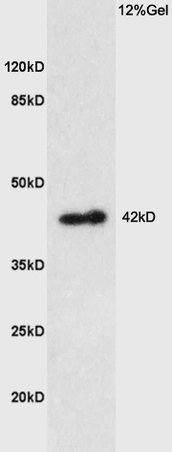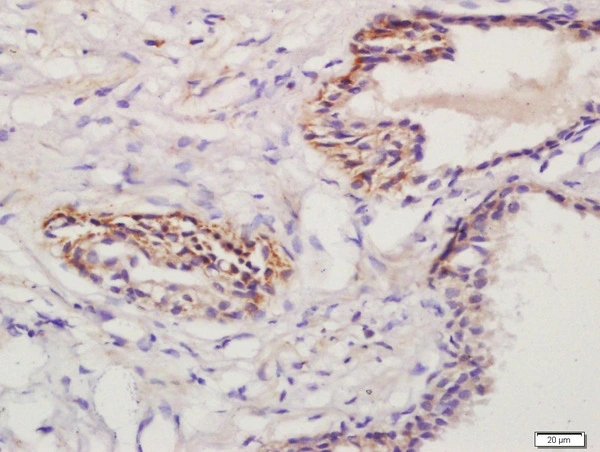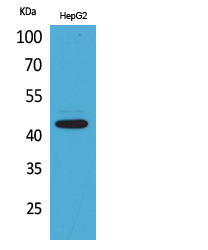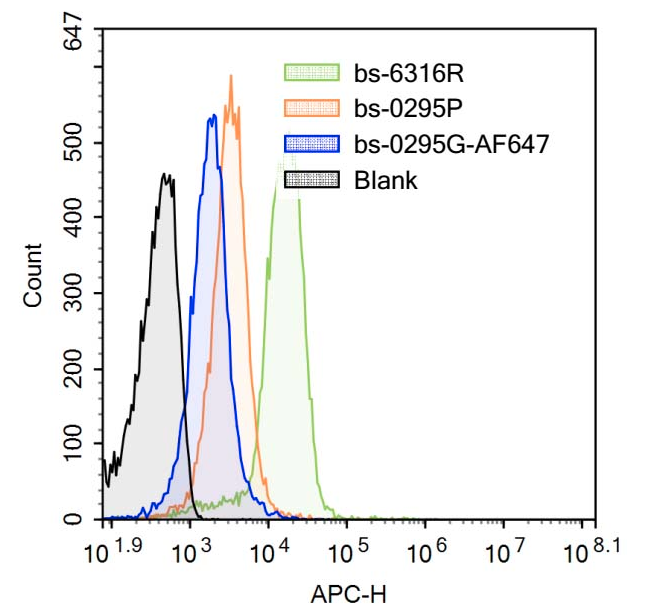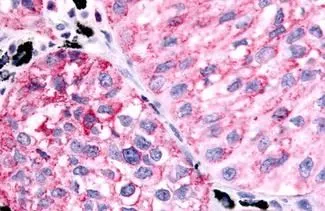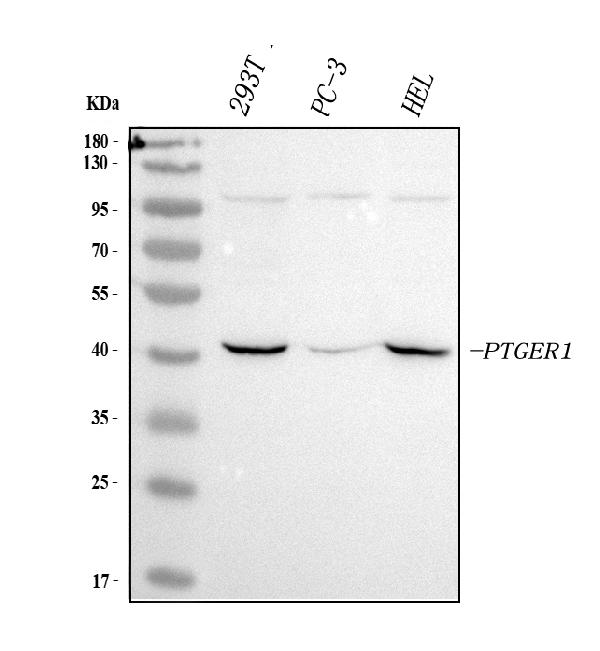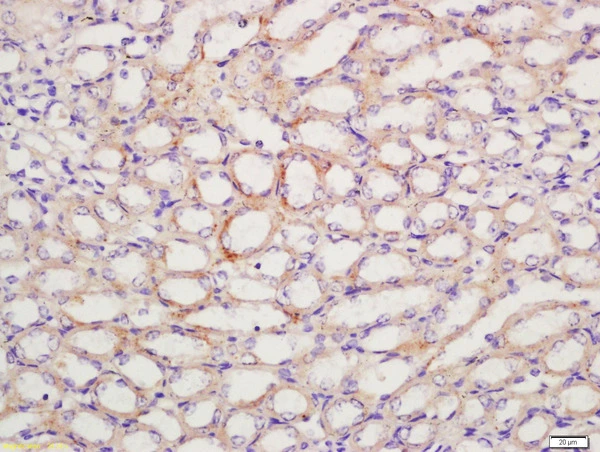
IHC-P analysis of mouse kidney tissue using GTX50972 Prostaglandin E Receptor EP1 antibody. Dilution : 1:200
Prostaglandin E Receptor EP1 antibody
GTX50972
ApplicationsWestern Blot, ImmunoHistoChemistry, ImmunoHistoChemistry Paraffin
Product group Antibodies
ReactivityHuman, Mouse
TargetPTGER1
Overview
- SupplierGeneTex
- Product NameProstaglandin E Receptor EP1 antibody
- Delivery Days Customer9
- Application Supplier NoteWB: 1:300-1000. IHC-P: 1:50-400. *Optimal dilutions/concentrations should be determined by the researcher.Not tested in other applications.
- ApplicationsWestern Blot, ImmunoHistoChemistry, ImmunoHistoChemistry Paraffin
- CertificationResearch Use Only
- ClonalityPolyclonal
- Concentration1 mg/ml
- ConjugateUnconjugated
- Gene ID5731
- Target namePTGER1
- Target descriptionprostaglandin E receptor 1
- Target synonymsEP1, prostaglandin E2 receptor EP1 subtype, PGE receptor, EP1 subtype, PGE2 receptor EP1 subtype, prostaglandin E receptor 1 (subtype EP1), 42kD, prostaglandin E receptor 1 (subtype EP1), 42kDa, prostaglandin E receptor 1, subtype EP1, prostanoid EP1 receptor
- HostRabbit
- IsotypeIgG
- Protein IDP34995
- Protein NameProstaglandin E2 receptor EP1 subtype
- Scientific DescriptionThe protein encoded by this gene is a member of the G protein-coupled receptor family. This protein is one of four receptors identified for prostaglandin E2 (PGE2). Through a phosphatidylinositol-calcium second messenger system, G-Q proteins mediate this receptors activity. Knockout studies in mice suggested a role of this receptor in mediating algesia and in regulation of blood pressure. Studies in mice also suggested that this gene may mediate adrenocorticotropic hormone response to bacterial endotoxin. [provided by RefSeq, Jul 2008]
- ReactivityHuman, Mouse
- Storage Instruction-20°C or -80°C,2°C to 8°C
- UNSPSC41116161

